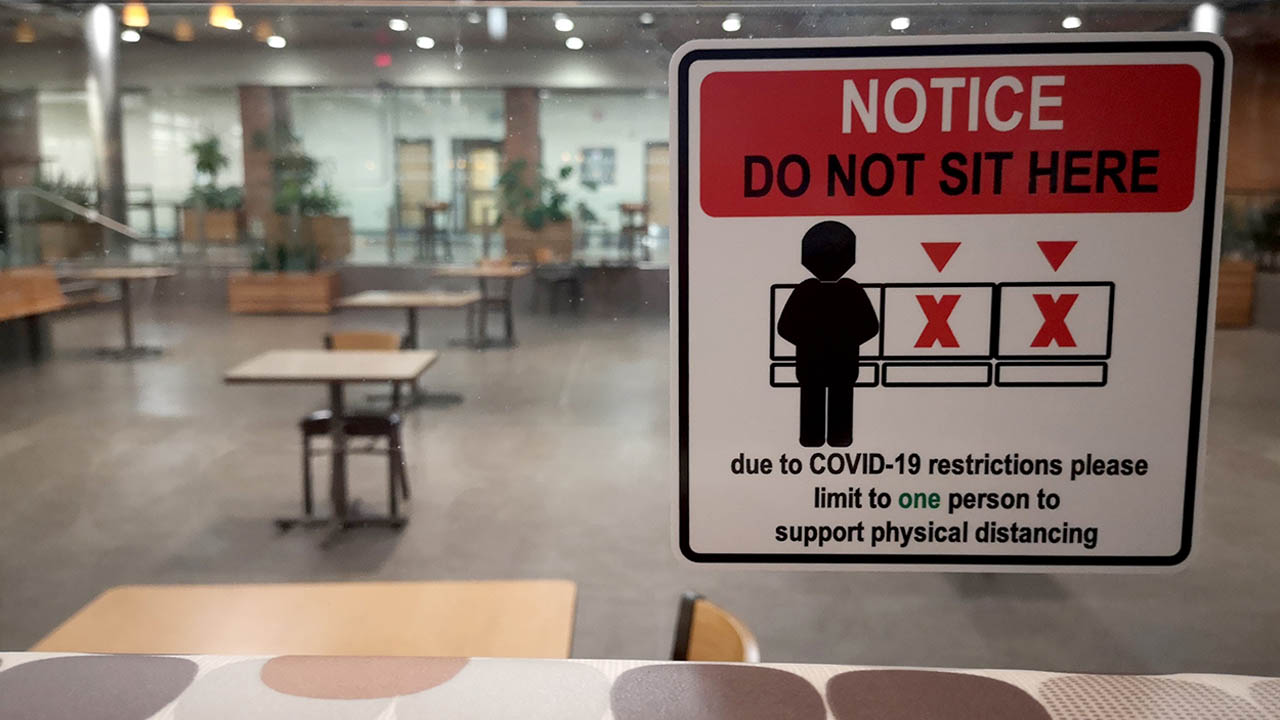Where do we go from here?
 CREDIT: ILHAN ADEN
CREDIT: ILHAN ADENOpinion: Enjoying freedom and safety means following the rules.
As cases are on the rise, stricter lockdown measures on the horizon, a new virus variant present, and a continued lack of transparency — 2021 is not off to a great start.
And with pandemic fatigue continuing to reverse our communal effort to stop the spread of COVID-19, where do we go from here?
How do we move forward as society when community is no longer valued?
How is one to determine when they must put their needs above the rest or in contrast, when to put the needs of the community above their own?
There is no easy or right answer, rather, these questions propagate many more, illuminating just how far we must grow if we are to make it out of this pandemic united.
What does freedom look like in a shared society?
Living in shared societies is similar to signing a social contract in which you both benefit and pay into.
As Matthew Rose of OurPolitics.net explains, a social contract argues, “…that individuals have consented in some form or the other to abandon some of their freedoms and obey to the authority of a ruler in exchange for protection of essential rights such as safety and security.”
In other words, people don’t stop at a red light because they have to, it’s done because we collectively agreed this system is safest for everyone involved be it pedestrians or drivers. In exchange for following the laws of the land, you have the freedom to drive with a sense of security. We also understand there are consequences for acting against the agreed upon rules.
However, by no means do I believe we should accept life as defined by “the authority of a ruler” but some form of leadership is necessary if a society is to organize and grow.
Now, how that leader is determined is a political and philosophical conversation for another article. Instead, I ask, is freedom our ability to live life with impunity while absolving ourselves of the harm we may cause?
Or rephrased, is leisurely travel amidst a global pandemic okay if it’s for the betterment of your mental health? Is choosing not to vaccinate your child for what you believe is their well being acceptable if it directly puts others at risk?
Where can we go from here?
With tragedy comes awakening. This pandemic has all but cast a spotlight to the underbelly of the suffering silent while simultaneously exposing bureaucratic flaws. With talks of implanting a universal basic income, reinvesting in innovative education and the reconfiguration of paid work — the sky is the limit. However, this all begins and ends at the helms of community.
Community is not just those you chose to share your space with, it is comprised of all members that interact on a reoccurring basis typically associated within a specific geographical location. There is also the sharing of beliefs and value systems that allow for a more intimate relationship within said community.
To be a part of a community is to share a mutual level of respect although views may differ; in a world where one can construct their own reality, this is a cause of concern.
If we ever hope to prosper amidst this pandemic and regain some semblance of normality, we must rise against the belief our individual rights always trump that of the collective.
As Coretta Scott King said, “the greatness of a community is most accurately measured by the compassionate actions of its members.”
It’s time to re-examine your social contract and ask — are you upholding your end of the bargain?
Editorial opinions or comments expressed in this online edition of Interrobang newspaper reflect the views of the writer and are not those of the Interrobang or the Fanshawe Student Union. The Interrobang is published weekly by the Fanshawe Student Union at 1001 Fanshawe College Blvd., P.O. Box 7005, London, Ontario, N5Y 5R6 and distributed through the Fanshawe College community. Letters to the editor are welcome. All letters are subject to editing and should be emailed. All letters must be accompanied by contact information. Letters can also be submitted online by clicking here.

















